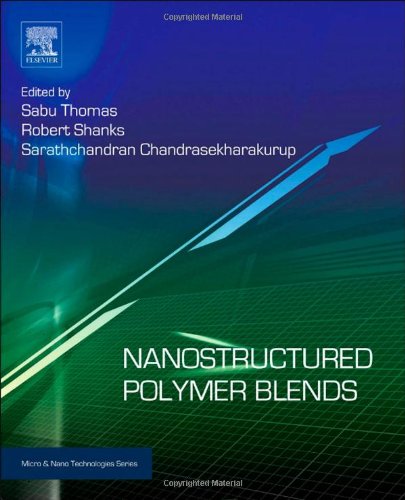

Most ebook files are in PDF format, so you can easily read them using various software such as Foxit Reader or directly on the Google Chrome browser.
Some ebook files are released by publishers in other formats such as .awz, .mobi, .epub, .fb2, etc. You may need to install specific software to read these formats on mobile/PC, such as Calibre.
Please read the tutorial at this link: https://ebookbell.com/faq
We offer FREE conversion to the popular formats you request; however, this may take some time. Therefore, right after payment, please email us, and we will try to provide the service as quickly as possible.
For some exceptional file formats or broken links (if any), please refrain from opening any disputes. Instead, email us first, and we will try to assist within a maximum of 6 hours.
EbookBell Team

4.3
8 reviewsOver 30% of commercial polymers are blends or alloys or one kind or another. Nanostructured blends offer the scientist or plastics engineer a new range of possibilities with characteristics including thermodynamic stablility; the potential to improve material transparency, creep and solvent resistance; the potential to simultaneously increase tensile strength and ductility; superior rheological properties; and relatively low cost.
Nanostructured Polymer Blends opens up immense structural possibilities via chemical and mechanical modifications that generate novel properties and functions and high-performance characteristics at a low cost. The emerging applications of these new materials cover a wide range of industry sectors, encompassing the coatings and adhesives industry, electronics, energy (photovoltaics), aerospace and medical devices (where polymer blends provide innovations in biocompatible materials).
This book explains the science of nanostructure formation and the nature of interphase formations, demystifies the design of nanostructured blends to achieve specific properties, and introduces the applications for this important new class of nanomaterial. All the key topics related to recent advances in blends are covered: IPNs, phase morphologies, composites and nanocomposites, nanostructure formation, the chemistry and structure of additives, etc.
Introduces the science and technology of nanostructured polymer blends - and the procedures involved in melt blending and chemical blending to produce new materials with specific performance characteristics